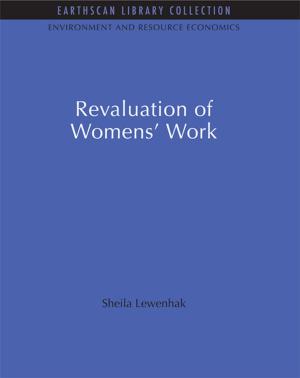After Full Employment
Business & Finance, Economics, Nonfiction, Social & Cultural Studies, Social Science| Author: | John Keane, John Owens | ISBN: | 9780429675430 |
| Publisher: | Taylor and Francis | Publication: | December 7, 2018 |
| Imprint: | Routledge | Language: | English |
| Author: | John Keane, John Owens |
| ISBN: | 9780429675430 |
| Publisher: | Taylor and Francis |
| Publication: | December 7, 2018 |
| Imprint: | Routledge |
| Language: | English |
First published in 1986. This book analyses, at an introductory level, the four main and competing political interpretations of the cause of unemployment and the future of paid work – social democracy, free market liberalism, the disciplinary state, and utopian socialism. Considered together these four interpretations are highly revealing – and challenging. They raise considerable doubts about the viability or desirability of policies design to ‘get the jobless back to work’.
Keane and Owens’ central argument is that the post-war policy of full male employment, as well as its politic, economic and social preconditions, are not repeatable, Starting with Keynes and Beveridge, they explain how and why full employment welfare states developed in Britain and the US, and how they had in turn been replaced by the ‘strong state, free market’ programmes of Thatcher and Reagan.
By focusing on an issue which was, and still is, at the heart of political debate, the book provides a lucid and approachable guide to four key strands of political thought it Britain and the US. It will be an ideal introductory text for students of politics, sociology and economics.
First published in 1986. This book analyses, at an introductory level, the four main and competing political interpretations of the cause of unemployment and the future of paid work – social democracy, free market liberalism, the disciplinary state, and utopian socialism. Considered together these four interpretations are highly revealing – and challenging. They raise considerable doubts about the viability or desirability of policies design to ‘get the jobless back to work’.
Keane and Owens’ central argument is that the post-war policy of full male employment, as well as its politic, economic and social preconditions, are not repeatable, Starting with Keynes and Beveridge, they explain how and why full employment welfare states developed in Britain and the US, and how they had in turn been replaced by the ‘strong state, free market’ programmes of Thatcher and Reagan.
By focusing on an issue which was, and still is, at the heart of political debate, the book provides a lucid and approachable guide to four key strands of political thought it Britain and the US. It will be an ideal introductory text for students of politics, sociology and economics.















